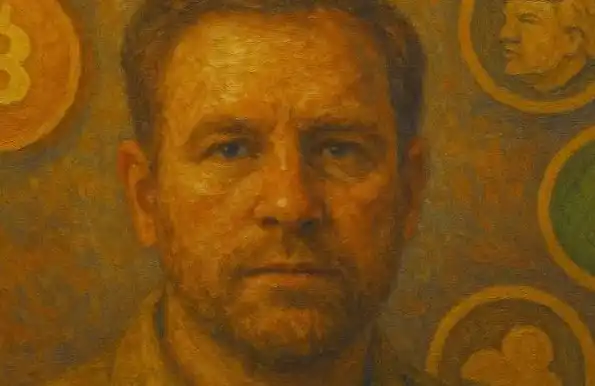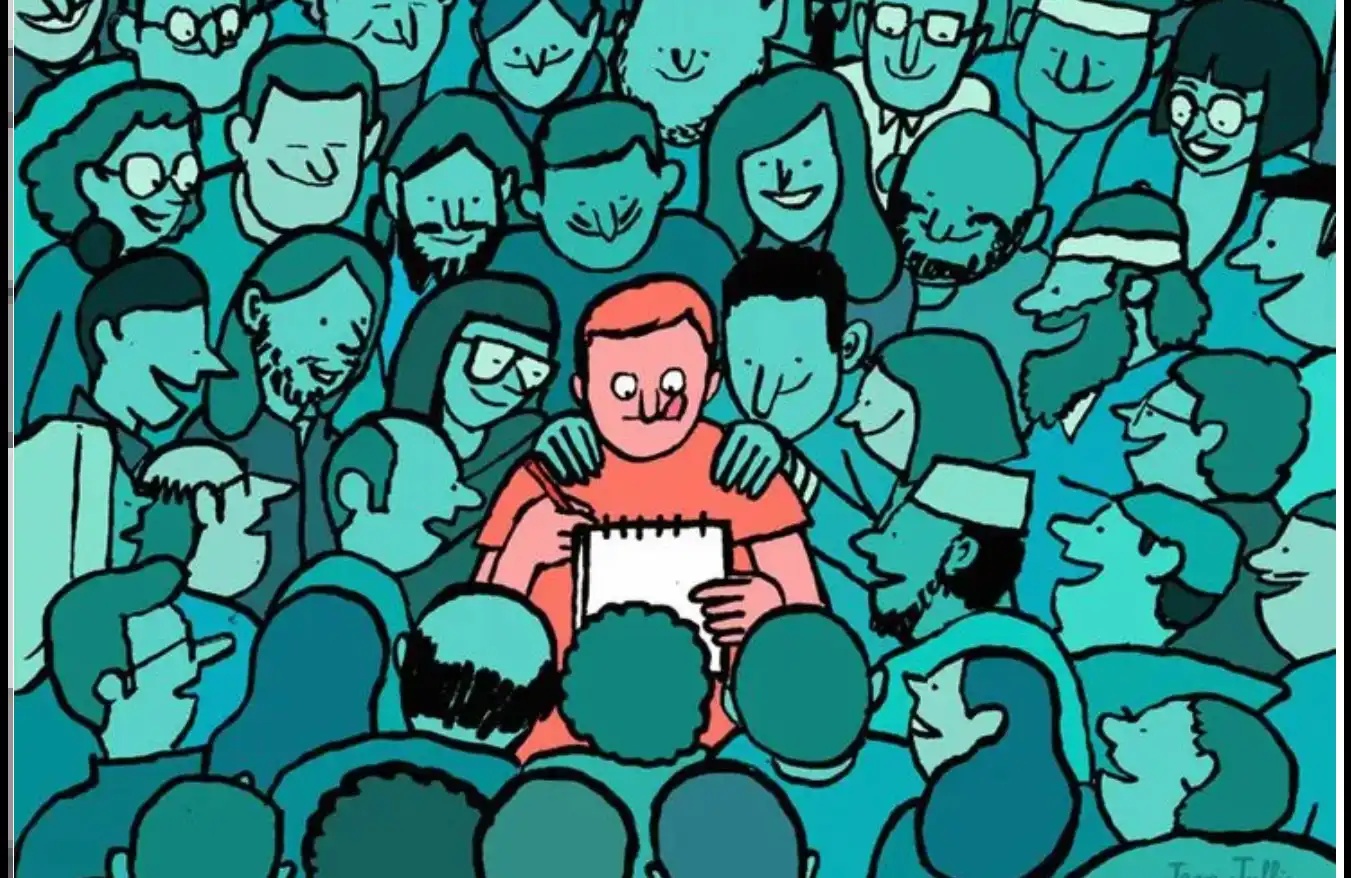In these countries, Web3.0 is their bread for tomorrow.
Original Title: "In these countries, Web3.0 is their bread and butter."
Original Author: Wu Tianyi, Reporter for The Paper
Original Source: The Paper
"In poorer countries that develop from the bottom up, there is a need for an upward channel. Traditional businesses offer no opportunities for young people. Some of them engage in investment trading, while others learn about Web3.0 technology to change their lives."
· "What is the significance of Web3.0 and blockchain in my eyes? In the future, humans will definitely spend more than 90% of their time living in virtual worlds. In such a large environment, there will certainly be some rule-based designs. Web3.0 and blockchain are definitely the most important economic systems."
"WAGMI" is a slang term used in the Web3.0 community, which stands for "We All Gonna Make It". Originally, it represented the community's recognition of a project, but now it has become a catchphrase among Web3.0 professionals. This phrase is also strongly believed by Wu Xiao, the founder of "Pure White Matrix".
When Wu Xiao entered the Web3.0 field, it was a time when the industry was not optimistic. However, he firmly believed in the power of decentralization and spent several years visiting various countries and regions, connecting with local developer ecosystems. Compared to the economically stable and technologically advancing countries in Europe and America, some small countries in Asia and Africa left a deeper impression on him. In those places, Web3.0 became the bank for deposits and withdrawals, the provider of jobs, and even the stock market, while cryptocurrencies became daily necessities. Recently, Wu Xiao shared his exploration of the application of Web3.0 in countries such as Turkey, Nigeria, and Egypt with Pengpai Technology.

"Pure White Matrix" founder Wu Xiao participated in a Web3.0 offline event in Turkey.
"Blockchain should not become a tool controlled by large companies"
Pengpai Technology: Why join the Web3.0 field and travel to various countries?
Wu Xiao: I entered the Web3.0 industry at the end of 2017. At that time, I came into contact with the game "Crypto Kitties" on Ethereum and discovered for the first time that I could write programs using distributed ledgers, such as Turing-complete programs on Ethereum. At that time, various Dapps (decentralized applications) appeared on Ethereum, including crypto celebrities, crypto countries, or other strange crypto-related games, and I went to play these games. When we played these crypto games early on, most Chinese people couldn't understand smart contracts. They only followed a rule similar to "the price you buy first will be lower than the price you buy later" to play, which led to Chinese players losing money when they started playing these crypto games.
Later, some people who understood technology and were willing to play appeared, which led to a phenomenon - some people stared at the address of smart contracts, while others stared at the address of front-end and back-end. Then a group of Chinese people bought together, which was equivalent to the first time to turn against foreigners. They called it "打老外" (meaning "fighting against foreigners"), which is a bit like an expeditionary force.
Afterwards, I started coding on my own. Upon entering this industry, I found it to be very new and interesting, with new technologies being developed every day. This is advantageous for us tech-savvy individuals. In the beginning, we developed blockchain games such as "Cell Evolution" and "The Last Journey". As blockchain games were not as popular at that time, we naturally transitioned to Web3.0 development.
I think one reason I entered the Web3.0 industry is because of the market and opportunities, and secondly, I received positive feedback here. Although Web3.0 was not popular in the previous cycle, I finally found something I could do. At that time, the blockchain game we designed won various awards such as Google and Facebook, and we received about four to five million in prize money. This is the driving force that gave us positive feedback.
Actually, as early as 2019, when the entire industry was in a bear market, we had already started to move forward and interact with overseas markets. We went to San Francisco GDC (Game Developers Conference) to communicate with developers on the international stage, participated in InfoComm (International Audiovisual Exhibition) in the United States, went to top computer conferences to communicate with some scientists, and connected with overseas projects. At that time, we were actually very confused and wanted to see what the situation was like abroad. After going out, we found that the situation abroad was also very pessimistic at that time, but we still insisted on external exchanges. There is still a group of people abroad who believe in the native power of blockchain and think that writing various programs on the blockchain is right, and it should not be separated from its token or change its incentive layer, and ultimately become a tool controlled by foreign governments or large companies.
As time goes by, Web3.0 has gradually entered this cycle. Not only has the market returned, but many commercial scenarios have also been applied abroad. Whether it is NFT (non-fungible token), DeFi (decentralized finance), or Compound (the World Bank in the blockchain world), there are more and more applications on the Ethereum network. The entire market is booming again, and small partners who couldn't see hope like us before have become stronger and stronger. In this cycle, we are more willing to go out because we hope to connect with more developers and learn about what developers in different countries are doing and paying attention to.
"Even fish sellers know about Web3.0"
Pengpai Technology: Why is Web3.0 considered a tool for people's survival in some countries?
Wu Xiao: Besides becoming a developer in the industry, I have actually traveled to many places. I have been to the Middle East and North Africa to conduct field investigations on Web3.0 and governance construction, which is different from the advanced Europe and America. These regions are relatively backward.
To say this sentence, it originated from our previous work on blockchain education a few years ago. First, we went through the countries in Africa with Web3.0 ecology online. One thing that impressed me deeply was that during a lecture one day, a Nigerian developer told me that the Nigerian central bank announced that buying cryptocurrency was illegal, but at the same time, he also told me that their government's currency depreciation rate was as high as 40%.

Wu Xiaowitnessed the Turkish driver constantly paying attention to the cryptocurrency "K-line".
He also said they believe in Binance, a cryptocurrency trading platform, because many US trading platforms are unwilling to provide services to Africans. At that time, Binance was expanding its Binance Chain and valued Africa, so many Nigerians bought cryptocurrencies when the national currency depreciated by 40%, and many people's lives changed dramatically. In Africa, cryptocurrency may be their bread and butter tomorrow. If someone is willing to teach them how to code, they can start their own business and develop applications to sell to international buyers after acquiring the necessary skills.
I was curious about this, so we connected with some developers in Southeast Asia, including Indonesia and Vietnam, and found that the situation in each country was different and developers were doing different things. In Pakistan, locals didn't have much of a concept of Web3.0, so we taught them about NFTs when we first went there, but we found that everyone was interested in learning new things. In wealthy places like Abu Dhabi and Dubai, they asked us to schedule classes and forums for locals. The oil production in wealthy Middle Eastern countries is very abundant, and they hope to turn their natural resource advantage into a technological advantage, because oil will eventually run out.
At Istanbul airport, the driver who picked us up was looking at the K-line of related cryptocurrencies, which shocked me. I felt that the Web3.0 atmosphere in Istanbul was very strong, and there were many NFT trading markets on the streets and alleys. Moreover, the locals also bought a large amount of coins.
The unemployment rate among young people in Turkey is very high. They are willing to work for free for 8-12 months like apprentices as long as someone provides transportation or bread, because they cannot find a job without work experience. This is a strange paradox and many young people have no way out.
I know some local college students who are part of a Web3.0 group. They rent a house together, even though they haven't graduated yet. I asked them why they don't go to school, and they said the knowledge taught in school is too outdated to keep up with the development. They created a developer studio and divided it into two rooms to work on Web3.0, just like in the TV show "Silicon Valley", where a group of people work together in one room while the other room is used for living.
A group of college students there introduced me to a small village in the southern part of the area, which was very small, but had a strong atmosphere of Web3.0. Even the fish sellers there knew about Web3.0. I asked one of the fish sellers what Web3.0 was, and he told me that there was a physical building dedicated to Web3.0 in their area, where events were held every day. Sometimes it felt like a "Web3.0 paradise" there. In places like Dubai and the United Arab Emirates, having one event per week is already considered good, but they were able to hold events every day.
The locals are so exaggerated that even the dowry for marriage is directly transferred to the account in Bitcoin. There, many people have lost hope, unable to find jobs or opportunities, and some choose to grow together with Web3.0. However, overall, Web3.0 brings a mixed state of both opportunities and risks, and these people are constantly moving forward on this ladder in this mixed state.
Jordanians' awareness and understanding of blockchain technology is not particularly high, but they are more familiar with blockchain games. Jordan has developed almost all mobile games in the Middle East, and besides games exported from China, the largest mobile games in the Middle East are made by local Jordanians who combine blockchain technology with gaming. Some local universities, such as Jordan University of Science and Technology, offer game design majors, which is actually rare in other countries.
During my travels, I also met some Filipino and Korean tourists who were buying coins, which proves the widespread application of Web3.0 - it has penetrated into various countries, groups, and people around the world.
Egyptians are also doing some Web3.0 related content. Besides China, Egypt is the only country that is also doing consortium chains, and they have some education and logistics related consortium chains. In addition, because Egyptian law explicitly prohibits the use and creation of blockchain transaction platforms, there is a very large black market in Egypt.
The black market is disguised as a shopping mall, but in reality, when you enter a small dark room and hand over the local currency to a person, they will transfer Bitcoin or Ethereum to your bank account within 24 hours. It is reported that this black market has been operating for more than 3 years and has even attracted a group of local companies to buy Bitcoin in the small dark room when investing abroad, which is something I did not expect.
In short, any economy needs imports and exports. In some regions, the import may be electronic pets in blockchain games. For example, some wealthy women who like electronic pets may hire Filipinos or Vietnamese to play games for them, and these people make a living from it. Traditional banks cannot reach some poor areas. In China, everyone thinks that depositing and withdrawing money is commonplace, but in some foreign places, it may not even be possible to open an account.
In a documentary, an elderly Southeast Asian couple relied on "mining" to obtain cryptocurrency, which they exchanged for bread and medicine. They have no visas, no green cards, and no bank accounts. And there are many countries like this, such as in Thailand, where 40% of young people have bought cryptocurrency, and in Latin America, where over 51% of people have bought cryptocurrency with Mastercard. This proportion will continue to grow, with many grassroots enterprises and developers gathering together, along with new applications bringing new business models, products, and services, and some smart regulators pushing it forward, creating a powerful force. This force needs political support.
"Web3.0 in front of everyone is equal"
Pengpai Technology: What are some memorable scenes from your travels around the world?
Wu Xiao: In Karst, there are many Russian programmers and engineers. When we went to do a sharing session, a bunch of people crowded into a small room to listen to Web3.0 and blockchain. I felt quite shocked. They had a gleam in their eyes and a fire in their hearts. They were born at the bottom, but they wanted to change their fate and learn. The kind of state where they were willing to fight was very magical.
And at some events in Dubai and the United Arab Emirates, some leaders dressed in white robes and said they wanted to embrace Web3.0. We suddenly felt that Web3.0 seemed to have undergone a revolutionary change. These politicians and managers became very welcoming to Web3.0, which is completely different from the situation where everyone used to condemn it.
At the largest technology exhibition in the Middle East, I did not contact anyone from Alibaba in advance, but we developed a Web3.0 developer tool and the Alibaba team invited me to speak on stage the next day. It's not just Alibaba, but also Microsoft, Google, Facebook, Huawei, and other big companies that are actively embracing Web3.0. This is completely different from the feeling we had before, when we couldn't afford a booth and no one paid attention to us. We have a huge sense of achievement now.
Pengpai Technology: Are there any aspects worth learning and emulating from these countries?
Wu Xiao: Definitely. I think Chinese colleagues, especially with the current open policies in Hong Kong, should take a closer look at the opportunities in Web3.0. It's not just about investment, but also about building Web3.0.
Today, there are many blue oceans in the Web3.0 industry, with many things to do. This is a great time to find your own direction and take your own place. In three to five years, if the Web3.0 industry matures, it may also become old and rigid. If you don't take the opportunity to explore now, there may be no chance when the industry truly matures.
You can think about the level of informationization in countries where the technology development is not very good. There, people who are not from a computer science background dare to venture into the field. Many of our interested friends in China should also join in and take a step forward. Today's Web3.0 is a world that is worth building.
Pengpai Technology: What is the meaning of Web3.0 and blockchain in your eyes? What might be the ultimate form of the future development?
Wu Xiao: Web3.0 makes everyone equal. In poorer countries that develop from the bottom up, there is a need for an upward channel. Web3.0 is a tool that can climb up regardless of battlefield rules, which is why these places rely on Web3.0. If you do traditional business, young people simply have no chance. Some of them are engaged in investment transactions, while others are learning Web3.0 technology to change their lives.
This kind of upward channel has changed fate, and to some extent can also bypass the economic situation, because it does not require a bank, and can be operated directly with a network cable. Even people from the lower class have the opportunity. Previously, even if some people understood the Internet and wanted to work for Americans, they could not even open a bank account without a visa, and the US dollar could not be transferred to their account. But on the blockchain, any cryptocurrency can be sent to someone from anywhere in a matter of seconds.
What is the significance of Web3.0 and blockchain in my eyes? In the future, humans will definitely spend more than 90% of their time living in virtual worlds. In such an environment, there will certainly be some rule-based designs. Web3.0 and blockchain are definitely the most important economic systems. You cannot expect that in such a world, only dollars and euros can be used. Even if you have game coins, they are definitely based on blockchain.
Therefore, Web3.0 is firstly the economic infrastructure, and secondly, it may be the infrastructure for laws and regulations. What kind of people commit what kind of offenses and what kind of punishments they will receive, all these rules must be open, transparent, and automatically enforced, which is particularly suitable for blockchain, which has already gathered global users and developers' consensus, to carry out certification and write some rules with smart contracts. Since everyone is developing and using this chain, it means that everyone has already agreed to abide by the rules of this chain. The chain has no bias, and these rules are suitable for and can only be formed by blockchain.
Original article link
Welcome to join the official BlockBeats community:
Telegram Subscription Group: https://t.me/theblockbeats
Telegram Discussion Group: https://t.me/BlockBeats_App
Official Twitter Account: https://twitter.com/BlockBeatsAsia
 Forum
Forum OPRR
OPRR Finance
Finance
 Specials
Specials
 On-chain Eco
On-chain Eco
 Entry
Entry
 Podcasts
Podcasts
 Activities
Activities

 Summarized by AI
Summarized by AI






